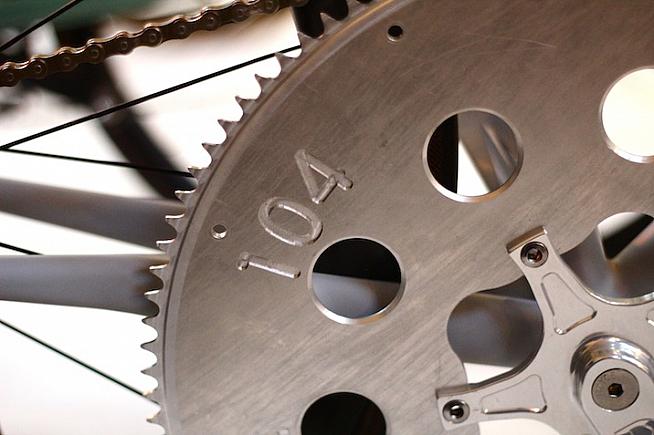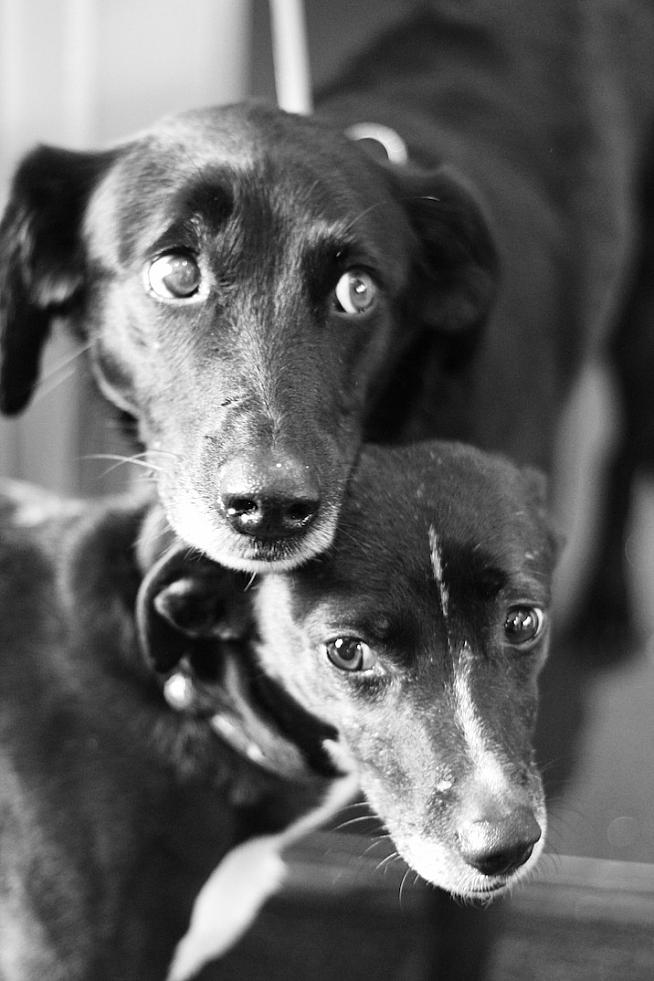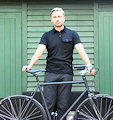Nick Hussey, founder of stylish cycle clothing company Vulpine, comes up with some ways for novice riders to improve their cycling.
Everyone hates being a novice. There's always the most to learn at the slowest speed. Plus you feel like a bit of a twonk. I still remember scooting around my local villages as a young teenager, experienced roadies passing me and shouting either mocking or helpful advice in my direction. I rarely could tell which, as The Doppler Effect meant I just heard ...........garbbbblegarrbbllee...thoSE TYRES MAte...garbbbblegarrbbllee.......
So here's a simple guide to get over the hump faster. Nobody ever stops learning how to be better cyclist, not even His Galactic Highness Sir Bradley of Wiggins. But these are the biggies:
Pedal faster
It's tempting to grind a gear at first, often because the skill of spinning without throwing your bum up and down on the saddle like it's a bucking bronco hasn't come yet. But 'cadence' as it's known is key to efficiency and safe joints. Have a goal of 100 rpm, and start feeling good about yourself at 80 rpm.
This applies to all cyclists, not just performance types. Knees are lovely things. Drop those gears.

Pedal better
To do the above you need a better technique. At first you're likely to use the quadriceps (front of your thigh) to smash down on the pedals. Start thinking about using your whole leg to pedal. A classic method is draw 'draw squares' with each foot. Push down, pull back, pull up, push forward with each foot. Sounds weird, but it'll get you there.
Make sure you push into the pedals with the ball of your foot, not arch or heel. Your knees should 'track' along a fairly vertical line, not bounce out or in too much. If they do, look at adjusting your foot position and also...
Get that position right 'enough'
Position is extremely important for any cyclist, and the more important the greater the effort or distance put in. Cycling is relatively stress-free on the body, but it is very repetitive. Doing a slightly wrong thing a few hundred times is fine. Doing it slightly wrong 20,000 times a day for many days a week (that's training for a big event) can cause lingering injuries quickly.
I say right 'enough' because it takes quite a while to really get your position just so. Nobody gets it right at first. But better still get a good local bike shop or experienced friendly cyclist to help you. Or best of all, if you're doing hard-riding or distance, get a fitting.
If you're spending serious money on a bike, spend serious money on a fit. It's the most important upgrade there is.
The aches that matter
Aching muscles, often know as the 'Lactic Burn' on the bike as you work really hard is a good thing. You're getting fitter. Yea!
Aching muscles after a hard ride is ok too. That's DOMS or Delayed Onset Muscle Soreness. Your body has been pushed really hard. Feel good, it'll pass, you'll be better.
But the aches that matter are shooting pains and the ones that don't go away. Neck pain, knee pain, lower back and suchlike should not be ignored. They likely mean incorrect position, technique or doing too much too soon.
Build up slowly and listen to your body. Joint problems don't go away quickly. If you exacerbate an issue, it can hang around for months, even permanently. Stop what you're doing and get advice, sure. But the best advice comes from a recommended physiotherapist. They rock.
Cycling is really good for you and pretty simple, but keep a look out.
Don't jump red lights
Experienced cyclists don't do it. RLJing is an affront to all cyclists, as it just gives ammunition to those that wish to attack cycling. Your fellow cyclists are behind you and making faces at you. Act for the greater good. Be a friend to cycling and we'll do the same for you. *group hug*
Every time a rusty chain squeaks, a kitten is put in a giant mincer
A poorly maintained drivetrain (chain, cogs, gears) is a SIN. It's annoying as hell, wears it out fast, which is expensive and inefficient, plus your chain has the potential to fail spectacularly. Plus the kittens. Think of the kittens you MONSTER.
Use a proper bike oil regularly, definitely at the sign of any noise or rust. Don't chuck it on, and remove excess with a rag after spinning the pedals backwards to get the chain well covered. Now look at the kittens waving back at you. They love you.

These dogs keep hiding the chain lube. They smell kitten. Do not look into their eyes. Do not let them win.
Tyres need your lovin'
Tyres are your connection to the ground. The grip. The control. Treat them with respect, you could be in trouble with a puncture or horizontalness.
Replace worn and cracked tyres immediately.
Get the pressures right. This is an endless source of argument on forums about the minutiae of 'right'. So the simple guide is:
Off-road tyres are best soft, so that they mould around objects they hit, not slide. On-road tyres are best hard, but not maximum-pressure hard. A bit of give grips, especially in the rain. I used to pump my tyres to their maximum of 120psi or more. HARSH ride, less grip. Now I ride at 85-90psi and the difference is huge. Grippy, but hard enough to resist most punctures.
To simplify further: Go just under the maximum and invest in decent tyres.
De-squish your brakes
Brakes are really really handy. A common mistake is to have the brake blocks too far from the wheel, so that the levers need a lot of squeeze to work. Sometimes they don't work enough, and stopping fast doesn't happen. Adjust the brake pads as they wear, so that you get contact fast. Often this can be a done with a barrel adjuster on the caliper. Or...
Your local friendly bike shop loves you
And we love it. They'll get those brakes working, find problems that you won't and even help you learn to do it yourself...
Early Learning Centres
This is by no means a must, but it's a great fast way to get the best from your cycling if you're getting serious.
An MTB skills course can bring on your riding light years in a day. It's hard to learn by yourself, and off-road riding is very technique and confidence dependent. Plus it'll help your road riding too.
A mechanics course means you can let go of your local friendly bike shop's hand and do it yourself. Good fun, and great value. Empowering, even.
A local cycling club is a superb place to learn a steady smattering of all of the above and more. A friendly inclusive club (ask around on forums or out riding) is a thing of joy and enjoyable education.
Snobs suck
It's very tempting when entering a group to bond through attacking another. We all started from scratch at some point, and we all enjoy different kinds of cycling for different reasons. Snobs attack because they feel threatened or uncomfortable. It doesn't make anyone look good.
Cyclists have enough to worry about without sneering at each other. Say hi to the ageing CTC tourer, the lunatic downhilling teen and the swish Di2 City broker sportive lover. We're all cyclists and that's a beautiful thang. *second group hug*
That's quite enough of that filth. Let's ride.
Buy lovely clothing for your ride (much of it in merino...) at Vulpine.
1 Comments





